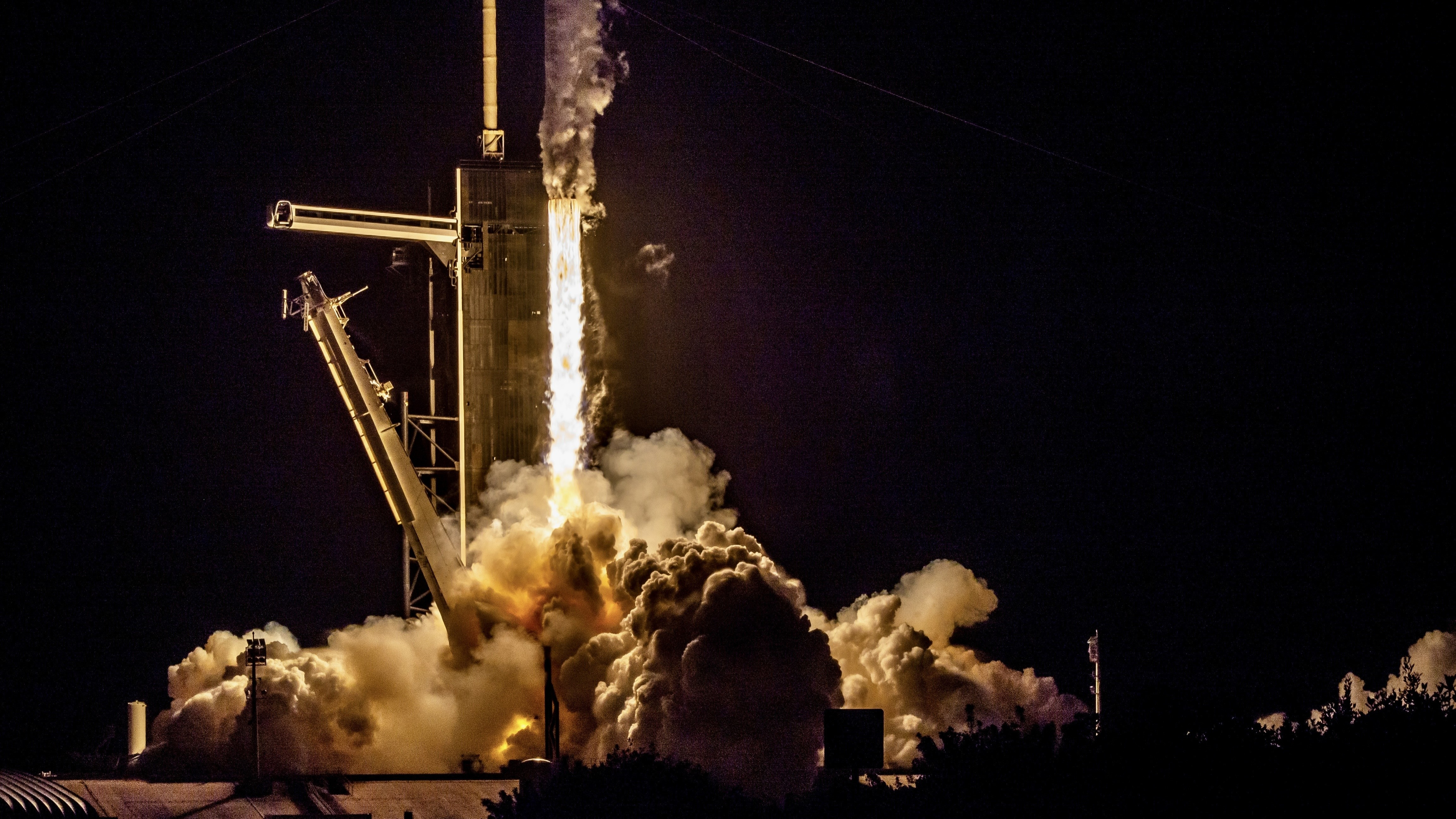There was nearly 1 rocket launch attempt every 34 hours in 2024 — this year will be even busier
"There is reason to have confidence in upward trajectory of the space economy."

2024 set spaceflight records for the fourth consecutive year with 259 launches worldwide and one launch attempt roughly every 34 hours, according to a recent analysis of the global space economy.
The report, published by The Space Report, the research arm of the Colorado-based non-profit organization Space Foundation, also predicts that the pace of launches will keep rising this year. This growth is partly driven by a renewed focus on independent launch capabilities in Europe, where launch vehicles in France, Germany and the U.K. are awaiting their debut flights.
"There is reason to have confidence in upward trajectory of the space economy," Space Foundation CEO Heather Pringle said in a statement. "One of the best ways to sustain that growth is continuing to build capacity for others to join us."
According to the report, SpaceX, a key provider of launch services to NASA and the Pentagon, recorded 132 Falcon 9 flights last year — representing a little more than half of the global launch traffic. Nearly 90 of those launches were meant to help expand the company's Starlink communications network, which serves over 4 million customers around the world and is projected to reach $11.8 billion in revenue this year.
Additionally, military spacecraft deployment increased by 86%. That major uptick is primarily due to the over 100 satellites SpaceX launched for the Starshield constellation to support national security efforts, according to proprietary research conducted by The Space Report and publicly available orbital information maintained by the U.S. Space Force.
The U.S. "dominated the launch cycle in 2024, outpacing China by more than 2-to-1," the report states. Meanwhile, Russia significantly increased the number of satellites it deployed into Earth orbit, rising from 21 in 2023 to 98 in 2024, with half of these spacecraft joining a network built to monitor ships along the strategically important Northern Sea Route as well as other oceans.
Still, space is poised to get even busier this year. In the U.S. alone, Blue Origin's long-awaited New Glenn rocket made its debut flight last month, reaching orbit and giving the company a chance to compete with SpaceX's Falcon 9. Among the missions New Glenn will eventually support is Amazon's Project Kuiper, which aims to rival SpaceX's Starlink network in providing global broadband internet services.
Get the Space.com Newsletter
Breaking space news, the latest updates on rocket launches, skywatching events and more!
This year will also mark the inaugural flights of Sierra Space's Dream Chaser spaceplane to the International Space Station atop a Vulcan rocket — scheduled for no earlier than May — and Rocket Lab's partially reusable Neutron rocket in mid-2025.
"These activities underscore the increasing prominence of commercial ventures in space," Matt Ondler, the chief technology officer at Axiom Space, told The Space Report.
In preparation for a busy year ahead, the Federal Communications Commission formally allocated additional spectrum for commercial space launches and introduced a more streamlined process to accelerate regulatory procedures. This change is designed to "enable companies to conduct launch activities without needing to request temporary authority from the FCC for each space launch," according to a statement by the Federal Communications Commission (FCC).
In Europe, French company Latitude is gearing up for the debut flight of its small launch vehicle named Zephyr this year. Similarly, Germany's Rocket Factory Augsburg is aiming for the inaugural launch of its RFA One rocket; the company is rebuilding the first stage after the original was destroyed during a static fire test.
Meanwhile the U.K.-based spaceflight company Orbex expects to launch its first two-stage rocket named Prime toward the end of this year, and Scotland-based Skyrora is preparing to launch its Skylark L suborbital flight following a year of regulatory roadblocks.
In Australia, launch vehicle startup Gilmour Space is preparing for the maiden Eris rocket launch — the first Australian-made rocket to lift off from Australian soil.
"The launchers may be small, but they are significant for nations striving to develop sovereign launch capability," the new report notes, with the above nations "looking to smaller launch vehicles to give them assured access to space."
Join our Space Forums to keep talking space on the latest missions, night sky and more! And if you have a news tip, correction or comment, let us know at: community@space.com.

Sharmila Kuthunur is a Seattle-based science journalist focusing on astronomy and space exploration. Her work has also appeared in Scientific American, Astronomy and Live Science, among other publications. She has earned a master's degree in journalism from Northeastern University in Boston. Follow her on BlueSky @skuthunur.bsky.social









